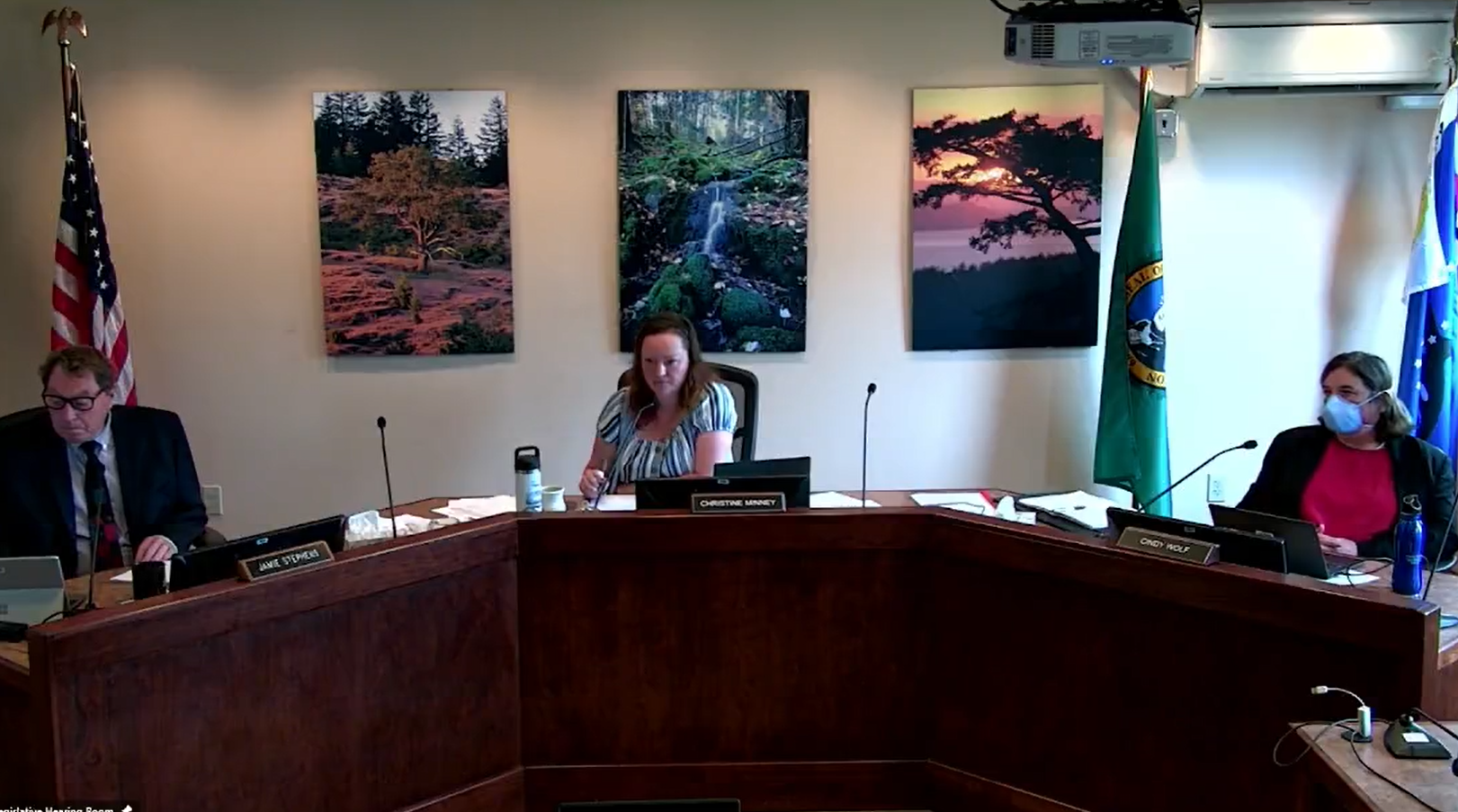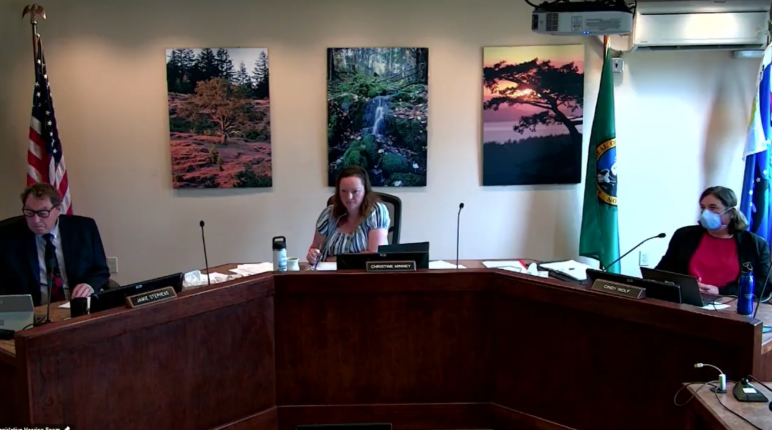Author’s note, August 26, 2022: Since the original publication of this article, two members of the Charter Review Commission successfully sued San Juan County to place these amendments back on the ballot in November. On August 15, a county superior court judge ruled that the County Council was incorrect in concluding that the Charter Review Commission’s term had expired and incorrect in unilaterally preventing the amendments from proceeding (instead of going through the judicial system). On August 17, the County Council referred the ballot measures to the County Auditor for placement on the ballot. Islanders will be able to vote on the amendments as intended on November 8. For more details, see coverage by the Salish Current and the Journal of the San Juan Islands.
Nine months ago, the 18 residents elected to San Juan County, Washington’s, Charter Review Commission proposed 4 amendments to the County Charter, including one to implement ranked choice voting. On Tuesday evening, just after the deadline to refer these amendments to the voters, the County Council voted 3–0 not to place the amendments on this November’s ballot for residents to vote on. After returning from a portion of their meeting that was not available to the public, San Juan County’s three Councilors said that the amendments “[do] not conform with the procedural requirements of the San Juan County Charter” but neglected to explain their decision any further.
An initial reading of the San Juan County Charter seems to indicate that the Council’s actions themselves are in violation of the Charter, which requires that “the County Council shall submit the amendment[s] to the voters at the next November general election.” This was not simply an error of omission. Not only did the Councilors fail to forward the amendments to the ballot as required by the Charter, but they explicitly made a motion stating that they would not submit the amendments to the County Auditor, the elections official that would put these measures on the ballot.
Both the timing and scant reasoning behind this choice do no favors for county residents (including Charter Review Commissioners) displeased with the decision. Since the Council waited until after the last minute to rebuff the charter amendments, some procedural paths to placing them before the voters in November are closed off. Even if the County Council later changed its decision or the courts ruled against it, there’s no guarantee that election administrators would receive the amendments in time to include them on the ballot. Councilors also omitted crucial details that could help residents understand their decision, like whether they found any specific amendments to be out of compliance, what part of the charter review process led to the alleged procedural problem, and which provisions of the charter they claimed were being violated.
[Author added this paragraph 8/9/22] While the Council provided no public explanation of its decision, the Journal of the San Juan Islands reported that the Council’s grievance may have been that the Charter Review Commission referred these four measures after previously referring six other measures. The local paper noted that the county’s Prosecuting Attorney originally told the Commission it could refer two sets of amendments but later advised against that option. The relevant portion of the County Charter states that the Commission’s term of service ends after one year or “when final recommendations are submitted” for the ballot, whichever comes first. If this reasoning holds up, the question is whether the Commission’s first set of amendments counted as submitting “final recommendations.”
Every decade, San Juan County voters elect 18 residents to a Charter Review Commission to review the County Charter and propose amendments. The Commissioners elected in 2020 proposed six amendments for the November 2021 election, plus the aforementioned four amendments for the November 2022 election. The 2022 proposed amendments would:
- Establish a new position of Public Advocate for the county;
- Clarify the funding, support, and authority of future Charter Review Commissions;
- Implement ranked choice voting for county elected positions; and
- Lower the required number of signatures for initiative and referendum petitions.
Several other jurisdictions throughout Cascadia are set to vote on adopting ranked choice voting this November. Portland, Oregon; Multnomah County, Oregon; and Clark County, Washington, all proposed it through charter commissions, and the Seattle City Council placed it on the ballot directly. Benton County, Oregon, could run its second ranked choice election for County Commissioner this November if a third candidate enters the race, and Alaska will have its first ranked choice elections in this month’s special election for US Representative and in November’s general election. Amid a wave of opportunities for Cascadians to improve how their voices are heard in state and local government, San Juan County voters might be denied that same chance.
This is a recent event with few details available, and we will update this article as new information is made public.










David Hodges
Ranked choice is foolish. You win or you loose. That’s it. Ranked choice Leeds to confusion and inept leaders.
Bill Tirrill
Plurality voting (what we have now) leads to people being elected even if the majority of voters voted against them. RCV ensures that the winner will have the support of the majority of the voters. And even a child knows how to pick “best,” “second-best,” “third-best” and so on.
Shaun Hubbard
Thank you for this article! As a San Juan Islander, I appreciate you taking a close look at this issue. It started many a discussion!
John Louton
Until our electoral system no longer gives us “the best government money can buy,” rank choice voting is simply one more step to stifle the right to free and fair elections for ALL eligible voters. For example, I am 80 years old and have voted in every election since I became eligible. In those 60+ years of voting, I have never actually voted FOR any candidate. Rather, I have voted for the candidate I see as the lesser of two evils. Obviously, in that situation rank choice voting simply obviates yet another right to decide which of the next level of candidates might best represent my views.